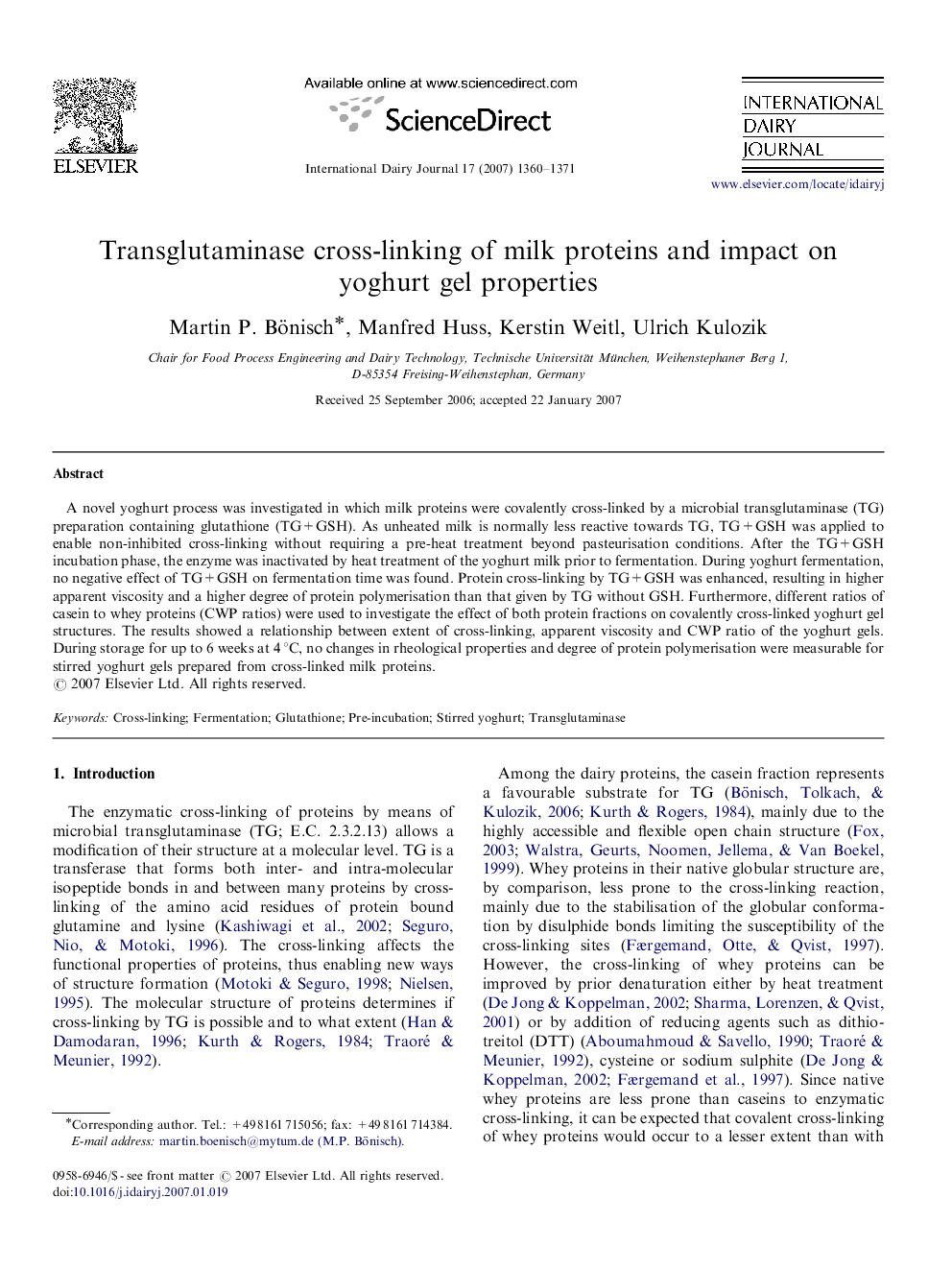| Article ID | Journal | Published Year | Pages | File Type |
|---|---|---|---|---|
| 2435620 | International Dairy Journal | 2007 | 12 Pages |
A novel yoghurt process was investigated in which milk proteins were covalently cross-linked by a microbial transglutaminase (TG) preparation containing glutathione (TG+GSH). As unheated milk is normally less reactive towards TG, TG+GSH was applied to enable non-inhibited cross-linking without requiring a pre-heat treatment beyond pasteurisation conditions. After the TG+GSH incubation phase, the enzyme was inactivated by heat treatment of the yoghurt milk prior to fermentation. During yoghurt fermentation, no negative effect of TG+GSH on fermentation time was found. Protein cross-linking by TG+GSH was enhanced, resulting in higher apparent viscosity and a higher degree of protein polymerisation than that given by TG without GSH. Furthermore, different ratios of casein to whey proteins (CWP ratios) were used to investigate the effect of both protein fractions on covalently cross-linked yoghurt gel structures. The results showed a relationship between extent of cross-linking, apparent viscosity and CWP ratio of the yoghurt gels. During storage for up to 6 weeks at 4 °C, no changes in rheological properties and degree of protein polymerisation were measurable for stirred yoghurt gels prepared from cross-linked milk proteins.
